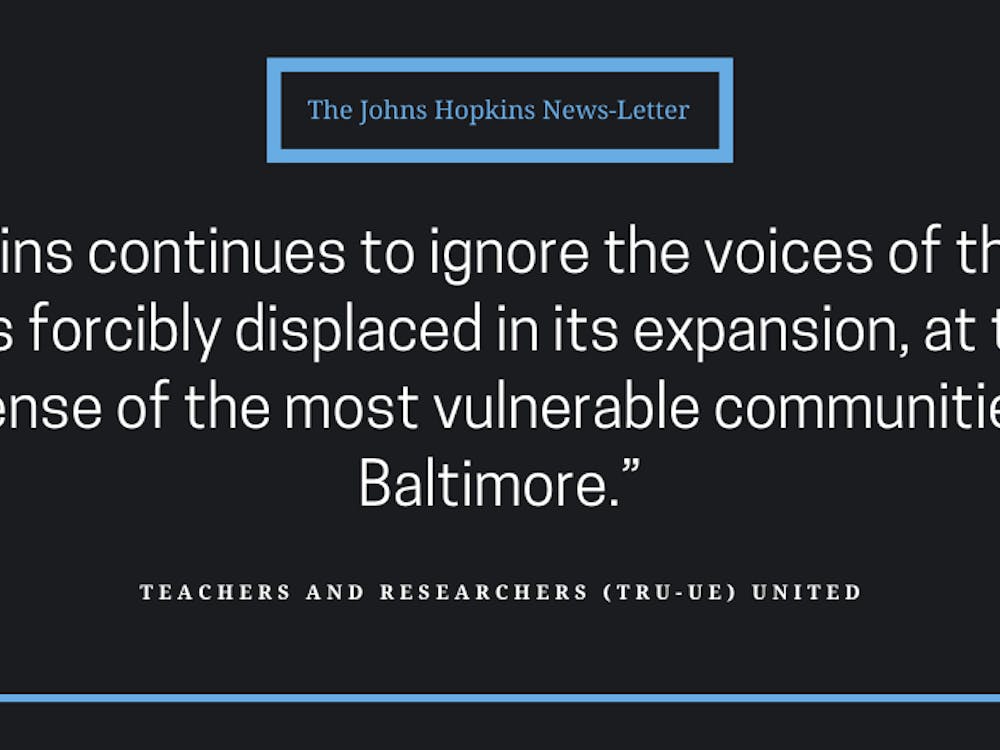David Plouffe, the manager of U.S. President Barack Obama’s 2008 campaign, headlined the final Foreign Affairs Symposium (FAS) event of the year, which was co-sponsored by the College Democrats.
Plouffe also served as assistant and senior advisor to the president from 2011 to 2013. Since 2014, he has been working in the private sector as vice president of policy and strategy at Uber.
“I think sometimes our campaigns can seem silly and small, and they’re covered that way, for sure, by the media. But they’re about massive things… Every direction a country, state, a city takes flows back to an election,” Plouffe said.
Plouffe opened by discussing his first foray into politics. During the summer after his junior year, he worked for Democrat Samuel Beard’s 1987 campaign for the U.S. Senate.
“We were big underdogs,” Plouffe said. “There was some polling done in the race — we’re down 20, 25 [points]. We closed really strong, and we won a huge upset [in the primary election, but] in one precinct in Delaware, they had given us too many votes. It was a big error. Instead of 28, they gave us 2,828... So the State Election Board said, ‘Actually, you’re now ahead by three votes, so we’re going to have a recount.’ And we lost by 71.”
According to Plouffe, this campaign actually strengthened his commitment to politics.
“If I hadn’t worked on that campaign, there’s no way I would’ve stuck in politics,” Plouffe said. “What it taught me was, ‘Hey, if any of us on that campaign... had worked a little bit harder, been a little more creative, we could have found 72 votes.”
Plouffe began to work for the campaign of then-State Senator Obama for U.S. Senate in 2003. According to Plouffe, the race was set to determine Obama’s political career.
“If he lost that race, then he was just going to be a lawyer or do something else,” Plouffe said. “His wife Michelle Obama had kind of run out of patience with him... He was the longest of longshots in that race — had very little institutional support, had very little money. And through running a terrific grassroots campaign... we captured people’s imagination in Illinois at that moment.”
Plouffe said the result was “an absolute blowout.”
“And what Obama had at the very end of that race was amazing momentum, so he ends up winning the general election, a fairly easy election,” Plouffe said.
At the time, Plouffe said he had not even considered Obama running for the presidency.
“There wasn’t a single one of us who worked for him 2004 who thought he was going to run for president at all, much less anytime soon,” he said.
According to Plouffe, Obama began thinking about running for president after the 2006 midterm elections.
“We... explained what a campaign would be like in very honest [terms] — how strong Hillary Clinton was, that he had a great life and he was going to give that up,” Plouffe said. “He had young kids, he’d never seen them, he’d probably lose, he could be embarrassed. At the end of the day, the way he put it was, ‘Sometimes, you can’t choose the timing, the timing chooses you.’ And he said, ‘I think I have something distinctive to offer. I have no idea if I’ll win. I probably won’t. But if I spend another six or eight years in Washington, I may not have that to offer. I may become too much of the institution and less fresh thinking.’”
Plouffe said that Obama’s victory in 2008 was largely due to a shift in the electorate.
“We would have lost almost every primary and caucus we entered if the average democratic elector had turned out, because Hillary Clinton was strong and was the party establishment,” Plouffe said. “Why did we win? Because tons of young people and tons of people who weren’t very political got involved.”
According to Plouffe, Obama was reelected in 2012 due to another shift in the electorate.
“What was remarkable about it was turnout amongst people under the age of 30 was higher than it was in 2008,” he said.
Plouffe said many would find this surprising because young people seemed to be enthusiastic about voting in 2008, but he explained that it had a lot to do with Obama’s opponent in each election.
“The difference between Obama and Romney on social issues, on foreign policy issues, was so profound — much more so than it was with McCain — so that what we saw with young people was less sort of giddy enthusiasm,” Plouffe said. “It was more sort of steely determination.”
Plouffe also discussed the role of the economy in the 2012 election.
“When we won reelection, we were defying fate, history, all the political wisdom... which was that when the economy is that weak, you simply cannot get reelected,” Plouffe said.
Plouffe also explained his decision to transition into the private sector.
“I had worked in politics my whole life... Once Obama won reelection,.. got through the inauguration,.. got through the State of the Union, it was time for me to leave... I had never worked in a company full-time,” Plouffe said.
Sophomore Angela Wang said she came to the event to learn more about the backstories behind Obama’s campaigns.
“I’m a big fan of Obama, and I thought it would be really cool to hear what his campaign manager had to say, as far as an insider’s perspective on how the campaign worked, and why he decided to work with [Obama] for so long,” Wang said.






















Please note All comments are eligible for publication in The News-Letter.